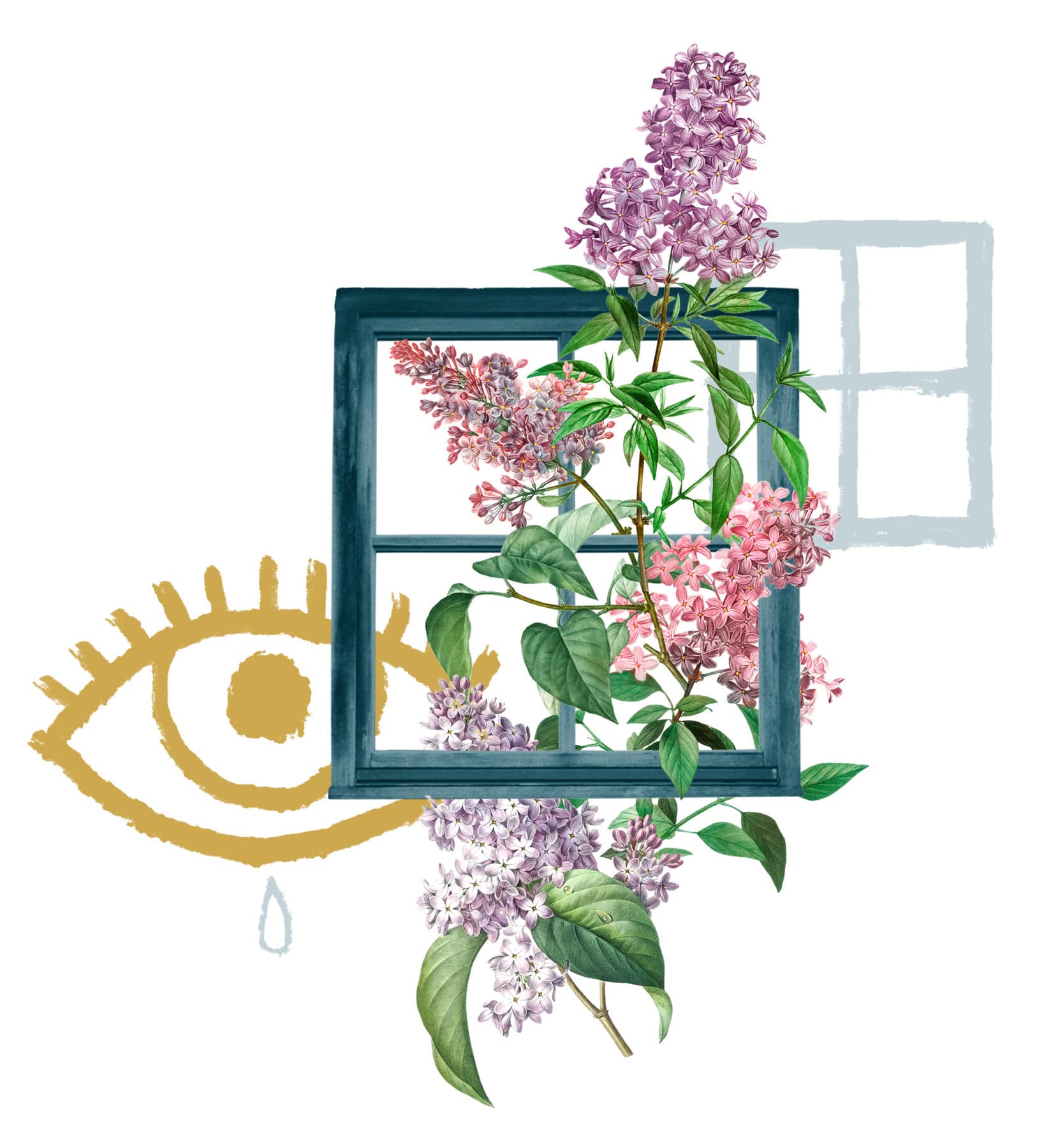Mrs. Simon said I was brilliant. No one had ever said that to me before. She said, One day, you will be a writer. Mrs. Simon was my eighth-grade English teacher. She was the one who was brilliant, a teacher who reached in and found a student in me, found a writer in me. That year, I wrote stories about loss and poems about lilacs; that spring, the lilac bushes were in bloom, lining the side of the decrepit Victorian house on the east side of the city where we’d recently moved, reaching all the way to our second-floor apartment.
Once, in fifth grade, the art teacher, young and hip in her short skirt and high-heeled clogs, had said to me, You look lovely in pink. I still remember it, a moment when I wasn’t both invisible and standing out for all the wrong reasons. I was one of the kids who rode bus 57. The kids with single moms, living in subsidized housing in a suburb where most of the other kids had sitting rooms with white couches and thick shag carpets, and family rooms designed for hanging out, and stay-at-home moms, and dads who worked 9 to 5. That year, I had been put in the lowest reading group, the Bluebirds. My classroom teacher was surprised, late in the year, when my Iowa Test scores revealed a reading level beyond the twelfth grade.
But then we moved to the city, to a school with all kinds of kids.
Mrs. Simon suggested I try out for the school play, so I did. A Twist on Twist, it was called, a rewrite of Oliver Twist she’d created in which all the orphans were girls. Now I had a place to be after school, a place where I could pretend to be someone else while becoming the most myself I had ever been.
Mrs. Simon said I was brilliant, and for that time with her, I was. And even when I wasn’t, it didn’t faze her. When I forgot the dance steps and fell out of line with the other orphans at rehearsal, or showed up to class without the essay that was due, I don’t remember feeling ashamed. I just knew I could do better.

At home, it was the worst year of my life. The summer before, my mother had married a man I was told to call Daddy Bill. She didn’t know much about him, had only dated him for three months before they married. She knew he had a PhD and three daughters and was a songwriter like she was. She also knew he wrote child pornography for a living, had written a book called Pretty Penny, about a man his age in love with a girl no older than me. She knew he had been fired from his job, teaching English at a private school for girls, for having a “relationship” with a fifteen-year-old student. She knew he could not have overnight visits with his own daughters, two of whom were the same ages as my sister and I, who were living in foster care because his oldest daughter, who was seventeen, had told social services that he had raped her when she was thirteen.
But at school, Mrs. Simon said I was brilliant, so I got out of bed in the morning, arrived almost on time to class. Wrote.
That was also the year my mother walked in after he’d hurt me, stumbled in and saw too much, could no longer not believe me, could no longer pretend it wasn’t happening. I’d lost my voice and couldn’t say the violations out loud, but this time, she could see with her own eyes. Unable to speak, I couldn’t perform in the play that evening, its third night, though my mother tried to soothe my throat with apricot brandy she’d bought in a half-gallon jug. My voice did not return, but I was soothed, went to the play anyway, and served as the stage manager right alongside Mrs. Simon as the stage manager performed in my place. That night, my mother took action, whether to protect me or to get even for herself. While I attended the play and then caught a ride to the cast party, she drank the apricot brandy, snuck into the friend’s house where he’d gone to stay, and tore the side of his face open with a metal spring. As she raced out, she fell on the rain-slick steps and broke her leg in four places, spiral fractures.
Eighth grade was the year my sister and I took turns sleeping on my mother’s floor so that every three or four hours we could hand her two codeines, or more, with a glass of water, bring fresh packs of ice, and empty her bedpan in the dark. It was the year we grocery shopped at the Big M four blocks away, rationed the food stamps to make sure we ate all month, considered the cost of each item before placing it in the cart, and learned to cook.
It was also the year that I was somebody in Mrs. Simon’s eyes. She believed in me, giving me just enough reason to believe in myself. Mrs. Simon said I was brilliant. She said one day I would be a writer.
Thirty-foot lilac bushes exhale outside a
paint-chipped windowsill, a window
that doesn’t latch. Hang on
reach for scented branches
climb away.
Start Sunday morning with a flash essay in your inbox. Enjoy short works hand-selected from the Creative Nonfiction, Brevity, Diagram, River Teeth, and Sweet Literary archives, as well as the occasional original work.
Join the Mailing List
